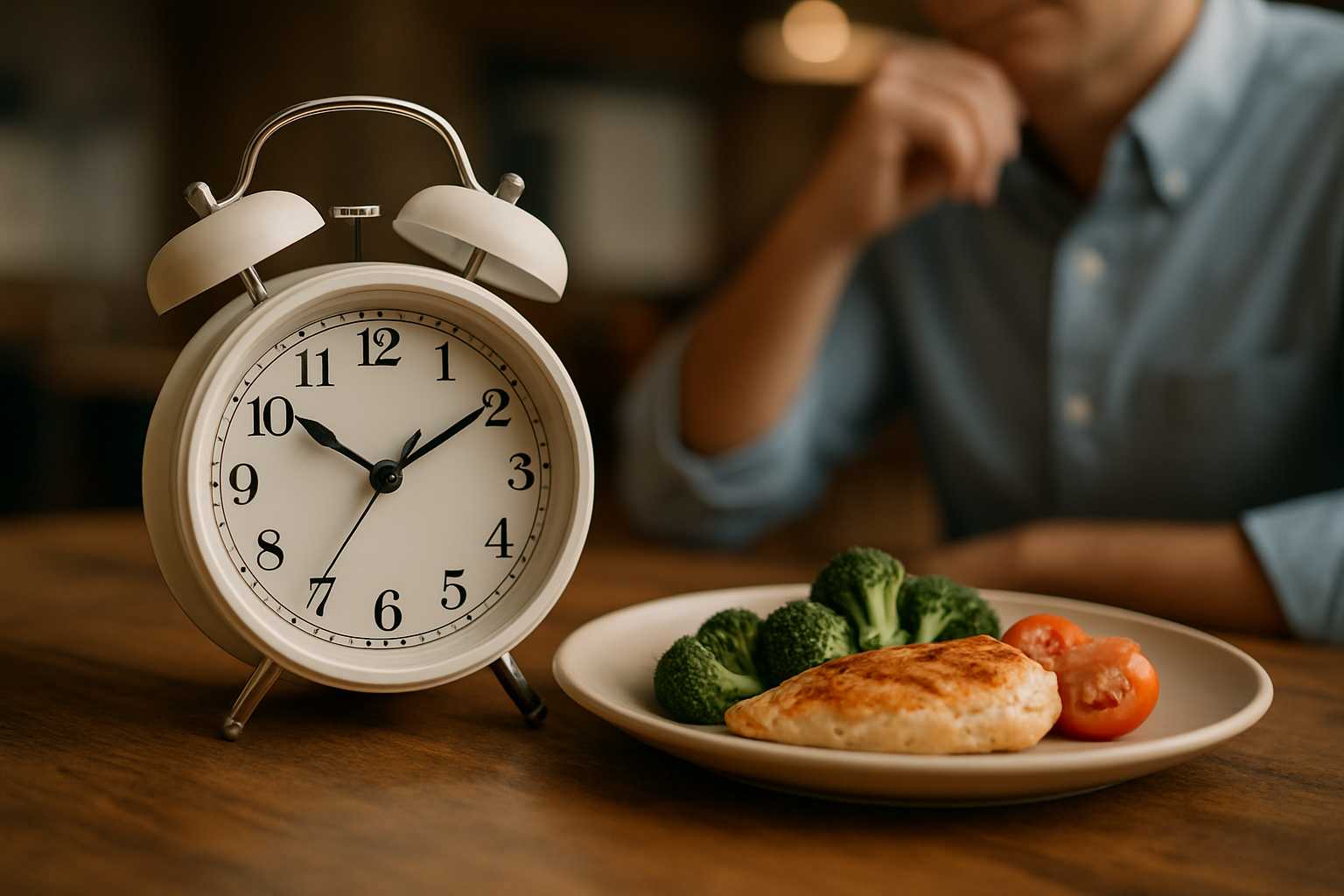Chronodiet: Syncing Your Meals with Your Body Clock for Optimal Health
How often have you found yourself eating a heavy meal late at night, only to wake up feeling sluggish and uncomfortable? What if there was a way to align your eating habits with your body's natural rhythms for better health and energy? Enter the world of chronodiet, a revolutionary approach to nutrition that's changing the way we think about when we eat.

The Science Behind Chronodiet
The concept of chronodiet is rooted in the field of chronobiology, which studies the natural physiological rhythms of living organisms. Our bodies operate on a 24-hour cycle, known as the circadian rhythm, which influences various biological processes, including hormone production, metabolism, and digestion.
Research has shown that our organs and tissues have their own internal clocks, which are synchronized by a master clock in the brain called the suprachiasmatic nucleus. These clocks regulate the expression of genes involved in metabolism, affecting how our bodies process nutrients at different times of the day.
Timing is Everything: The Principles of Chronodiet
The core principle of chronodiet is to align your eating schedule with your body’s natural rhythms. This means consuming most of your calories earlier in the day when your metabolism is at its peak and tapering off as the day progresses.
Key aspects of chronodiet include:
-
Eating breakfast within an hour of waking up to kickstart your metabolism
-
Having your largest meal at lunch when digestive enzymes are most active
-
Consuming a lighter dinner at least 3 hours before bedtime
-
Avoiding late-night snacking to allow your body to focus on repair and regeneration during sleep
Benefits of Adopting a Chronodiet
Proponents of chronodiet claim numerous health benefits, many of which are supported by emerging scientific research:
-
Improved metabolic health: Studies have shown that eating in sync with circadian rhythms can lead to better glucose control and insulin sensitivity.
-
Enhanced weight management: By aligning meal times with periods of optimal metabolism, chronodiet may support more efficient weight loss and maintenance.
-
Better sleep quality: Avoiding late-night eating can improve sleep patterns by reducing digestive discomfort and allowing the body to focus on restorative processes during sleep.
-
Increased energy levels: By providing fuel when the body needs it most, chronodiet can help maintain steady energy throughout the day.
-
Potential longevity benefits: Some research suggests that aligning eating patterns with circadian rhythms may contribute to cellular health and potentially extend lifespan.
Implementing Chronodiet in Your Daily Life
Adopting a chronodiet doesn’t have to be complicated. Here are some practical tips to get started:
-
Establish a consistent eating schedule: Try to eat your meals at the same time each day to help regulate your body’s internal clock.
-
Front-load your calories: Aim to consume about 50% of your daily calories before 3 PM.
-
Respect your sleep-wake cycle: Avoid eating within 3 hours of bedtime to allow for proper digestion and sleep quality.
-
Stay hydrated: Drink water throughout the day, but taper off in the evening to prevent nighttime bathroom trips.
-
Be mindful of caffeine intake: Limit caffeine consumption to the morning hours to avoid disrupting your sleep patterns.
Challenges and Considerations
While chronodiet shows promise, it’s important to note that individual responses may vary. Factors such as work schedules, family commitments, and personal preferences can make it challenging to adhere strictly to a time-restricted eating pattern.
Moreover, chronodiet may not be suitable for everyone. Individuals with certain medical conditions, such as diabetes or eating disorders, should consult with a healthcare professional before making significant changes to their eating patterns.
Chrono-Nutrition Tips for Optimal Health
-
Start your day with a protein-rich breakfast to boost metabolism and satiety
-
Include complex carbohydrates in your lunch for sustained energy throughout the afternoon
-
Opt for lighter, vegetable-based dinners to support better sleep and digestion
-
Consider a 12-hour fasting window overnight to align with your body’s natural repair processes
-
Stay consistent with your meal times, even on weekends, to reinforce your body’s internal rhythms
As we continue to unravel the complex relationship between our body clocks and nutrition, chronodiet emerges as a promising approach to optimize health and well-being. By aligning our eating patterns with our natural circadian rhythms, we may unlock new pathways to improved metabolic health, energy levels, and overall vitality. While more research is needed to fully understand the long-term effects of chronodiet, the growing body of evidence suggests that paying attention to when we eat could be just as important as what we put on our plates.






